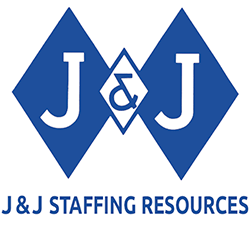
Inside the Hiring Process: How to Land Your Dream Job
The hiring process often seems like a mystery when you’re the job candidate.
While the recruitment process varies between industries, companies, and departments, the steps are similar to the hiring process and often lead to the same result: one person receives an offer.
For those who are not hired, it can feel like a riddle trying to understand what happened, as not every business notifies applicants if they are rejected.
Understanding the steps in the recruitment process can help candidates get their foot in the door and begin a successful career path.
Whether you are interviewing with a company for the first time, or are on the other side of the table recruiting candidates to fill a job position, it’s mutually beneficial to help potential candidates easily flow through your hiring process.
Here’s a guide to understanding the job recruitment process.


Recruitment vs Hiring
While they sound similar, recruitment and hiring are slightly different terms in the job selection process.
Recruitment is the process of searching for candidates that you wish to hire and going out to look for applicants to apply.
Hiring (or selection) is the action you take within your company to choose who you wish to hire. Hiring can involve internal interviews, tours of your facility, and pre-screening tests to make sure they can complete the job tasks required.
Both of these processes involve talking to possible applicants and seeing who may be the best fit for the job opening.
Recruitment can be a positive and uplifting experience for both candidates and companies because new relationships are being created. Unfortunately, hiring can result in the opposite experience in many cases. All candidates feel they should get the job, but in some cases only one person can be chosen.
This leads to more animosity towards the company overall and breaks away from the previous experiences that were had.
What is the Hiring Process?
The hiring process begins when a company identifies the need to fill a position within their company. This process continues until the position is filled, or they determine they no longer need to hire someone for this role.
The company then needs to plan how they wish to recruit possible candidates. If the company is looking to fill many positions, such as complete staffing for a newly-opening casual restaurant, they can use a service like J&J Staffing. Doing so will take the stress out of the hiring process while filling multiple roles in the business.
There are also a few main types of hires that a company can make use of. They can hire temporary employees, temp-to-hire employees, directly hire employees, or contract to hire employees.

These different types of employees give more flexibility to the hiring and recruitment process so they can choose how they wish to staff their company in the short or long term.
Temporary employees can sometimes become full time staff members. This gives you a great advantage when choosing a new staff member. You may not always know when someone will work out at your company, so this is a great choice.
Depending on the type of job you’re hiring for, direct hiring and contract to hire employees could be another alternative to think about when you’re hiring.
The hiring process itself can take a few weeks, depending on the availability of job seekers.

The Steps of the Recruitment Process
Typical job hunters don’t stop after applying to one position and often find themselves in different phases of multiple hiring processes. This can make things confusing, as if the job landscape wasn’t hard enough to navigate already.
To make things easier, we’ve put together a standard hiring process template that many businesses follow so you can see what might be next while you’re waiting to hear back.
While every business is a little different, here is quick peek at what the typical job recruitment process involves after a resume has been submitted.
1. Resume Review Process
Most business use Applicant Tracking System software (ATS) to review submitted resumes and search for keywords and phrases.
The ATS program is looking for words relevant to the job listing ad the resume was submitted to see if the applicant is a good match.
If the company is utilizing people rather than software to scan resumes, recruiter takes only about 6 seconds to review a resume.
That means candidates have a very short amount of time to impress recruiters and need to use precise language and keywords relevant to the job listings to make their resume stand out.
2. Phone Interview
An HR representative will select the resumes that best fit the requirements of the position.
Next, the representative calls all of the applicants to conduct a short phone interview. Here, candidates need to answer the HR rep’s questions with confidence, enthusiasm, and professionalism.
At this stage of the recruitment process, the rep is not only confirming what’s on the resume but each candidate’s communication skills and interest in the position, which determines whether the resume will be passed on to the hiring manager.
3. First Round of Interviews
After discussing the qualifications of each candidate with the HR rep, the hiring manager will choose which prospects will be asked to come in for an in-person interview.
The manager will already be acquainted with your skills and qualifications before the interview. This meeting is all about evaluating your personality and how you could potentially fit the position and company culture.
Be prepared to answer interview questions about:
- Your skills and expertise and how they meet the job requirements.
- Situational questions that are designed to hone in on your ability to understand the responsibilities the job requires.
- Behavioral questions that gauge your interpersonal and judgment skills.
4. Second Interviews
Candidates who are called back for a second round of face-to-face interviews often meet with the manager again as well as potential coworkers.
If you make it to this round, now is the time to let your personality shine while still being professional.

The purpose of the second interview is so the interviewer can get a better idea of your working style, personality, and how you might fit in with current employees.
5. Decision and Job Offers
Now that all the interviews are finished, the manager compares the impression of each candidate.
Once a final decision has been made, the HR representative reaches out to the selected candidate to extend a job offer.
6. Salary Negotiation
The final step in the recruitment process is salary negotiation. This is where it pays to be prepared and do research and know the typical salary for your position.
You also want to consider what you are worth to the company based on your expertise, skills, and whether your role is fast growing or hard to fill.
For those who make it to the final stage of the recruitment process, congratulations! If you don’t, don’t be discouraged.
There’s often a photo finish between the applicant who gets the job and the finalists who did not. If you got close, you were clearly a strong candidate and have a lot to offer! If you weren’t, it’s okay; there are some things you can do to boost your chances.
Now that you know the steps in the recruitment process, you can prepare! Here are some ways to help you increase your chances of getting an interview so you can nail the job recruitment process and snag that dream job!

What is a job recruiter?
A job recruiter is someone who works to get positions filled at various companies. They work to find qualified candidates and are usually paid based on their ability to not waste the company’s time with unqualified applicants.
Agency recruiters are often associated with a high volume of candidates without the proper skills needed.
Since recruiters are paid by the hiring company, they want to make sure they’re giving quality candidates over a high quantity.
Other types of recruiters are paid only if candidates are filled and not just based on the volume they can bring in.
Job recruiters are very beneficial and worth it for the hiring process if they:
- Follow up with the candidate and keep them informed about what they know
- Communicate frequently to put the candidate’s mind at ease
- Give feedback on what they heard back about interviews
- Return calls from concerned candidates, especially if they haven’t heard back in a while.
Finding a job on your own without a job recruiter can be tough. A job recruiter can act as the party between you and the company you’re trying to work at.
To find a job recruiter, you can search online for an employment agency who will do the grunt work for you. This will allow you to polish your resume and sit back and let the recruiter do the heavy lifting.
LinkedIn is also a great way to find a job recruiter since this platform was essentially made to be an online resume.
How does the interview process work?
The Interview process is the best way for both candidates and hiring companies to get a better understanding of what their future relationship may look like.
The interview is a great time for candidates to discover things they like and things they don’t like about the company they’re considering joining.
The hiring process is very expensive for companies as well. That’s why companies use this as an opportunity to make sure they’re making a great decision.
The last thing they would want to do is hire someone and find out in 6 months that they weren’t nearly as qualified to complete the job as they thought.
For this reason, the company may want to consider temp-to-hire employees as we discussed earlier.

Companies can choose which type of interview they’d like to conduct, or a mixture of multiple types. These interview types are:
- Screening Interviews
Also called mini interviews, they are often conducted on the phone and are not always conducted by a hirer up who will be making the hiring decision. They are often time savers for these decision makers. Some candidates are not quite qualified and it can be easy to see this up front. If a candidate is not great at answering basic questions, the screener can determine not to send this candidate into the next phase of an interview. - Phone Interviews
Not all companies conduct phone interviews, but they can be great timesavers. You can often ask the same questions as in-person interviews, but reduce the need for commuting or scheduling a conference room at your office. The problem with these types of interviews, however, is you cannot see the person face-to-face or see how they are different in person vs. on the phone. That’s why the last type of interview is the most important. - In-Person Interviews
To really see what a person is like, you need to see them face-to-face. This will help you to see how they answer questions and may get a better understanding if they are lying about a particular skill they have. Body language is important and gives additional signals you are not able to see in a phone interview. It’s also a great time to see how the candidate makes use of eye contact, a very important skill in almost all industries.
Finding a job on your own without a job recruiter can be tough. A job recruiter can act as the party between you and the company you’re trying to work at.
To find a job recruiter, you can search online for an employment agency who will do the grunt work for you. This will allow you to polish your resume and sit back and let the recruiter do the heavy lifting.
LinkedIn is also a great way to find a job recruiter since this platform was essentially made to be an online resume.

6 Tips for Getting an Interview
1. Update and Optimize Your Resume
Be honest, are you still using the same resume you submitted last time you were searching for a job?
If so, you need to update that resume ASAP.
Not only should your resume and cover letter be up-to-date, it needs to reflect the job opportunity you are applying for. Be sure to highlight specific skills and experiences you’ve had that relate to the job opportunity you want to get.
2. Clean Up and Utilize Your Social Media Profiles
It should come as no surprise that employers Google their candidates. Any information associated with your name is fair game to browse through, whether it’s Facebook, Twitter, Pinterest, or Instagram.
Make sure no inappropriate content appears publicly on any of those platforms.
Don’t completely sanitize your social media profiles though; make them work for you!
- If you’re active in your community, post about it.
- Did you just write an awesome blog? Share it!
- Have you done volunteer work or donated to an organization recently? Post a picture of it and link to the organization’s website in the post.
Social media is about sharing, so it’s not a bad idea to share how considerate, personable, and community-minded you are.
3. Building your LinkedIn profile to get a job
Making professional connections online is a great way to boost your presence and impress employers too.
Remember, anyone who is job hunting should be on LinkedIn! You should make sure that your profile is updated with a professional picture and your experience and skills.
Once you have a basic profile setup, you should start adding connections. By reconnecting with people you’ve known, you increase your chances of finding job leads.
A fully-completed profile with ample connections and endorsements makes you look more professional.
4. Use Online Tools Effectively
If you’re not using online job search engines, you are missing out!
There are a lot of reliable job search engines out there, and many employers and employees are starting to use them.
Here are a few job recruitment websites to considering utilizing
These websites will help you with your job search and find opportunities in your area.
5. Consider Using A Staffing Agency
Job search engines are great for some people, but you may find that you feel a bit lost looking at the vast selection options.
This is especially true if you’re not sure about your strengths as a candidate. You may also want to talk to someone about your resume and LinkedIn profile if you don’t know where to begin.
A staffing agency can get to know your experience and personality and then help find a job that is perfectly suited for you.
6. Be Reachable!
You may be in the habit of ignoring calls from strange numbers, but when you’re submitting resumes, you’re going to get a lot of calls from numbers you don’t recognize.
You don’t want to miss any of them because you never know who might be calling you about a great opportunity.
Be prepared to answer the phone promptly, professionally, and be ready to talk about your resume
By following these tips, you should be able to set yourself apart from the rest of the applicants and get an interview.
Now, it’s time to tackle the most challenging part of the recruitment process: nailing the interviews.
A lot of candidates worry about the phone and face-to-face interviews, but some preparation and research can go a long way. Here are some tips to help you be confined during the interviewing process.
Tips for Job Interview Questions and Answers
Do your Homework
Hopefully, you’ve done some research about the company while tailoring your resume and cover letter to match the opportunity they are offering.
If you are asked for an interview, you should get more acquainted with the company, their services, and culture outside of the job offer.
Many managers tend to ask questions related to their own business in interviews.
Forgetting to do comprehensive research into a potential employer is a big mistake
By taking the time to learn more about the business that posted the listing, you will gain information that will be useful in the interview and you will appear eager and knowledgeable to your potential employer.

Dress for Success
This sounds like a no-brainer, but a surprising amount of people arrive for in-person interviews who don’t strive to look their best.
Whatever you prefer to wear is strictly up to you, but you should never speak to a would-be employer dressed like you couldn’t care less about getting the job.
When in doubt, you should always come to the interview dressed in full business attire.
Be Confident and Charismatic
Before the interview, take the time to prepare yourself.
Think about the key points you want to say beforehand and practice them in a mirror or in front of someone you trust. Your goal during the interview is to emphasize your positive qualities and expertise while being friendly and professional.
Before walking into the interview, try your best to relax.
Being nervous or lacking confidence is a surefire way to undermine all your qualifications.
Take a deep breath, drink some tea, and remember to practice what you want to say. Being able to walk out of an interview feeling relaxed is a good sign you did well.
Have Questions of Your Own
While you are preparing and doing research, be sure to come up with some questions of your own to ask during the interview.
Employers love it when you have questions because it shows you did your homework and are passionate about the company and position.
Aim to have at least three to four questions ready to ask.
Be Sure to Follow Up
While following up after a job interview is a lost art in our modern society, it should still be observed.
Both a polite email or an actual postcard works!
Sending out a message of thanks shows initiative, respect, and willingness to go the extra mile to do something the right way.
It always gets a good reaction and, even if you don’t get the job, will help employers remember you the next time a position opens up.
Staffing Services In Greater Philadelphia
J & J Staffing Resources is a professional staffing agency that connects local businesses to job seekers throughout the Greater Philadelphia area, including Pennsylvania, New Jersey, and Delaware.
We bring over 45 years of expertise in office, industrial, technical, and professional staffing placements as well as payroll management, and offer a wide range of services for both employers and job seekers.
Need help? J & J Staffing has offices in Newark, Bridgeport, Woodbury, Cherry Hill, Ewing, Princeton, Langhorne, and Horsham. Visit your local J & J staffing center or get started below.
